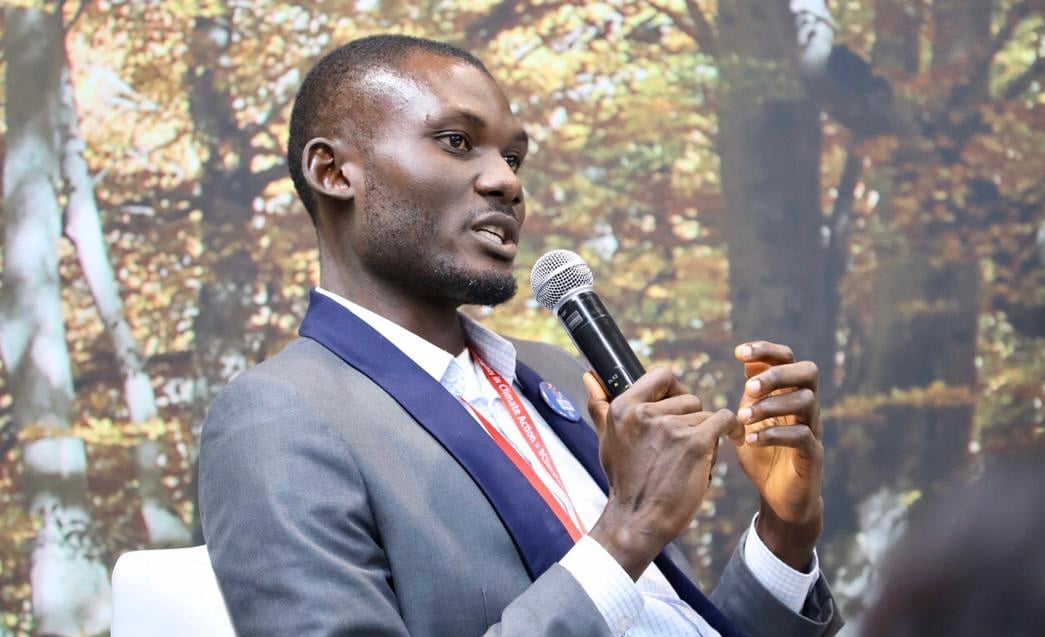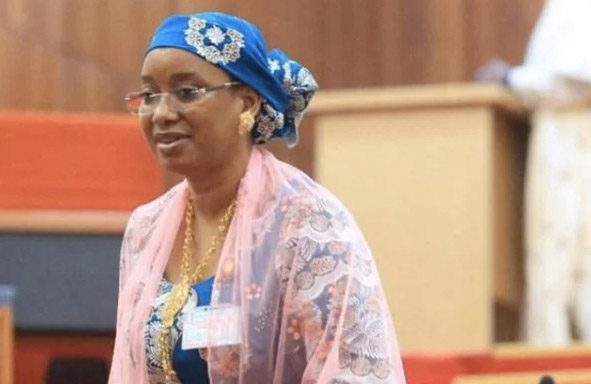Opeyemi Elujulo, a climate change advocate, is carving a niche for himself as a relentless torch bearer for safer environmental practices. He is driven by the urgency to impact change in a world where the farms that once fed us are now fueling the very climate crisis that threatens our existence.
A chilling reality is unfolding before our eyes and what’s worse is that we are actively the cause of our problems.
The truth is that the hands that sowed the seeds that germinate into our favourite foods are unwittingly contributing to devastating floods and scorching heat waves. Elujulo believes that harmful agricultural practices are impacting not only our food systems but also the delicate ecosystem we call the earth.
To paint a clearer picture, there are natural gases in the air that control how warm or how cold the atmosphere gets — these are called greenhouse gases. However, human activities are increasing the concentration of these gases and causing extreme weather conditions. Some of these activities include the use of synthetic fertilisers, industrial farming, and mono-cropping, to mention a few.
Advertisement
With Africa’s deep-rooted reliance on agriculture, it’s no surprise that the bond between the continent and century-old farming practices runs strong. Elujulo told TheCable that convincing Africans to embrace safer agricultural practices has been a formidable challenge. The connection between culture, tradition, and livelihoods has created a complex situation where change comes slowly.
Elujulo is a 32-year-old climate activist with over seven years of experience exploring the intersection between safe food systems and the environment. Witnessing his grandmother’s struggles on the farm made him swear off agriculture. But his persistent advocacy for the fight against the earth’s degradation is inspiring change and showing that anyone can make a difference.
“My grandmother was the greatest farmer I knew but I saw how she struggled,” he told TheCable in an interview.
Advertisement
“Her farm produce suffered from yearly situations of drought and rainfall. Even when she was not making anything substantial, the farm was still everything to her.”
He couldn’t understand why. And so, when he was offered agriculture as a course of study, Elujulo was convinced his life was a comic show for the universe.
“I deferred it because I hated it. When I remembered my grandmother’s struggle — she wasn’t making the money she should have — I was not ready to go down that road,” he said.
“Second year, I got Zoology. I wasn’t really thrilled but I took it because I didn’t want to stay at home.
Advertisement
“After NYSC, the message of climate change found me and I found a link between my grandmother’s struggle and the climate after some research. I then got a purpose to help farmers do what they love to do. I got to realise rain was delayed because of climate change and so were the droughts. Things began to make sense and I felt I could do something about it.”
OLD HABITS DIE HARD
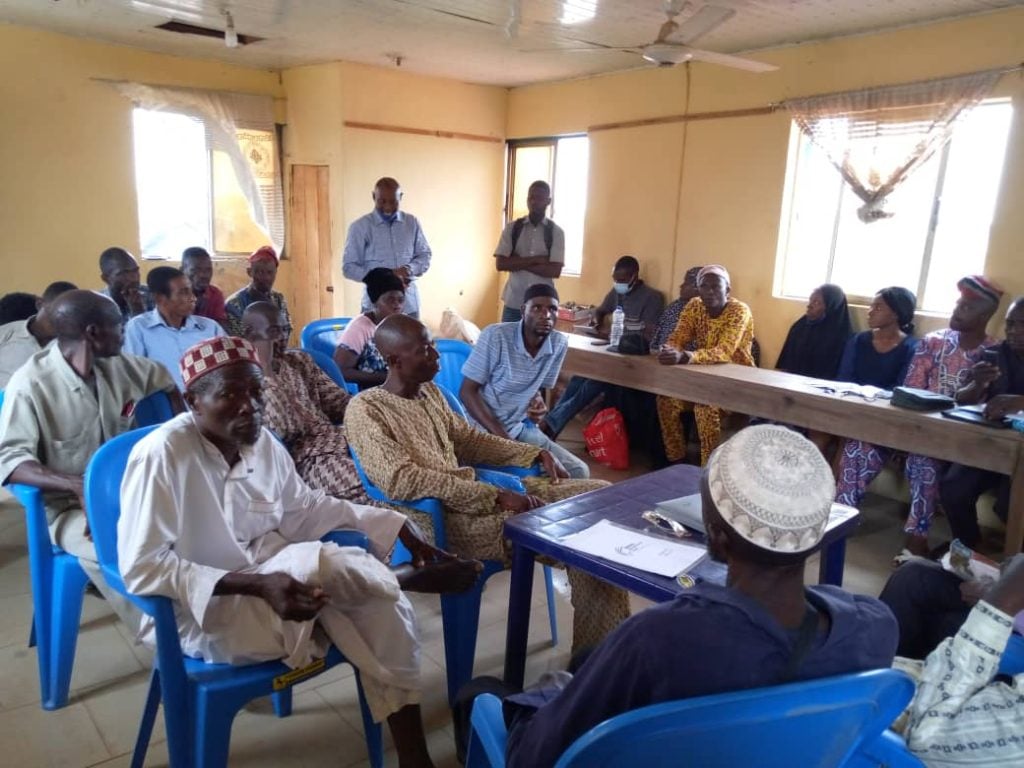
Many people believe burning fossil fuels and consuming high levels of energy are the major drivers of climate change. Elujulo does not agree. Very little is spoken about agriculture. He told TheCable that agriculture is a major driver and needs to be addressed sooner than later.
Some of the farming methods he saw his grandmother practise are the same methods that go on today on other people’s farms. Old habits die hard much to the detriment of the practitioners.
Advertisement
“Globally, agriculture alone contributes about one-third of the total greenhouse gas emissions which is pretty serious. This includes procurement, production on the farm, transportation of goods from the farm, energy use on the farm, and anything at all that has to do with the agricultural chain. The percentage contribution is pretty massive and concerning,” he said.
“”At the World Food Forum, which is an initiative of the FAO of the UN Youth Committee, this year, we’re saying food action is climate action and that goes to show the extent to which agriculture is damaging to our climate system. I think that’s why the advocacy is strong now to transform the food system.
Advertisement
“In the past, agriculture had not taken its place in international discussions to show its impact on climate change. In fact, the first time that agriculture and food systems were mentioned and found their way into a major conversation was COP27 last year and we’ve had 27 COPs. I think it’s because people are now beginning to see the impact of agriculture on climate change.”
Elujulo’s goal is to transform the environment using sustainable agricultural practices and to focus on soil health so that food can be produced better.
Advertisement
Sustainable farming practices involve switching to nature-based solutions. Examples of these include agro-forestry, agroecology, regenerative agriculture, and conservative agriculture. These solutions do not support massive intrusive farming systems but use what it gets on the farm to produce ingredients for itself — an organic approach.
According to the environmentalist, many synthetic fertilisers have corrupted soil health. However, many farmers do not pay much attention to this because the yields are faster. But quantity does not always mean quality.
Advertisement
One of the ways through which organic manure can be gotten is from livestock farming — ironically another driver of climate change.
Livestock faeces can be used to produce compost for healthy agriculture but in many African farms, that is not the case. The faeces are left on the farm and are expected to decompose into manure. The reality is a dump of poisonous gas that is harming the atmosphere.
“One of the most contributors to climate change from agriculture is livestock farming,” Elujulo told TheCable.
“For one, they feed on grassland and their faeces emits methane which is way more potent than carbon dioxide. So, one of the things that we encourage is that rather than leaving it in the open, you can use it to produce fertiliser. That way, it’s not just in the open. It nourishes your soil much more than synthetic fertlisers.
“One thing about the NPK fertilisers is that they don’t actually add much to the soil. They supply nutrients to the plants; but then, if you are using compost from the repurposed livestock faeces, it enriches both the soil and the plant. When you re-purpose this waste, you are addressing climate change.”
THE MANY DIFFICULTIES OF SUSTAINABLE AGRICULTURE
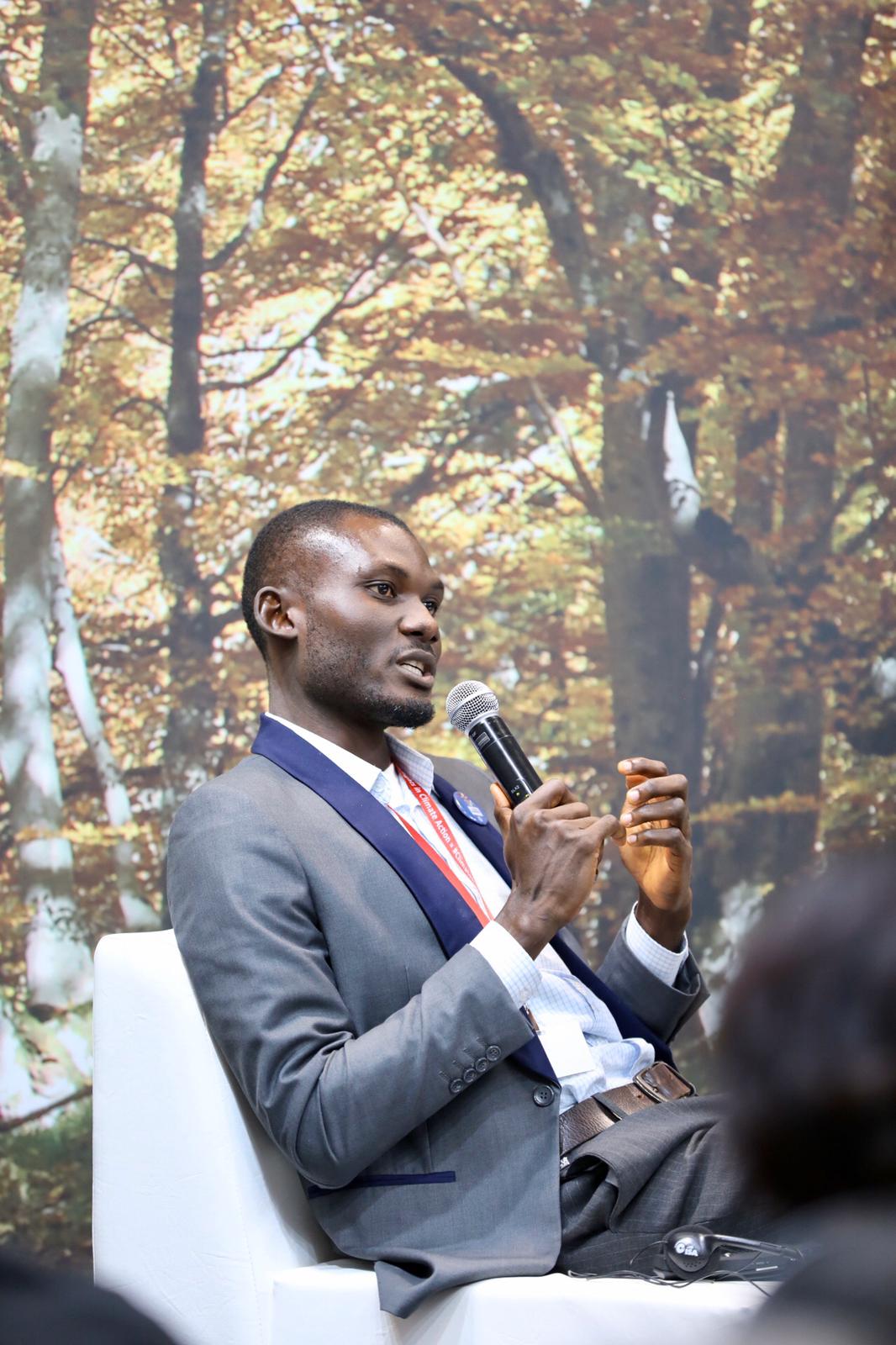
The ease of local and small farmers to adapt to healthier farming practices is not as easy as it sounds. Many sustainable agricultural practices are high-priced and the meagre income of farmers crippled by the rising inflation does not do much to encourage them.
Those who are ready to explore the new agriculture wave are hindered by the lack of political will.
“Agro-ecology is expensive. You can get a bag of compost or organic fertiliser for N3,000 and it would only be used for a small plot,” Elujulo said.
“It doesn’t mineralise or get to your plants easily and you know farmers are not patient, they want to plant and reap almost immediately in large quantities. But when you get your NPK and apply on the farm, it mineralises in no time when applied on the farm so farmers go for that.
“Currently, the income of farmers is not reflective of their investments, so they wouldn’t naturally go for anything that would increase their cost of production. So, the advocacy is to take it in steps. It’s costly when you start but as time goes by, you will be a don.
“Imagine not having to buy fertilisers from anyone but being able to produce it on your farm yourselves. But they don’t see that.”
Another hindering factor, Elujulo added, is the lack of value for healthy farming practices. Farmers who attempt to engage in sustainable agriculture are met with a hostile market owing to a hike in price of their farm produce. The cycle is discouraging and pushes them to embrace old ways, he noted.
“Another thing about organic agriculture is that people don’t really value it like that,“ he said.
“Imagine you incurred a whole lot of costs producing your crops and then you take it to the market, but people are pricing it the same way they’re pricing the ones grown with NPK fertilisers. It does not really encourage farmers.
“It is a law of demand and supply. The consumers who control what the farmers produce are not appreciating and embracing the health benefits of healthy agricultural produce. There’s also the lack of technical competence for those who want to produce fertilisers, pesticides, and everything you need to effectively manage a farm such that it becomes sustainable.
“I think political will as well is a major challenge. It’s not there to really drive the concept of sustainable agriculture because you see the government of Nigeria invests more in chemical fertilisers, but not biological fertilisers.”
‘CHANGE COMES BY INVESTING IN OUR PLANET’
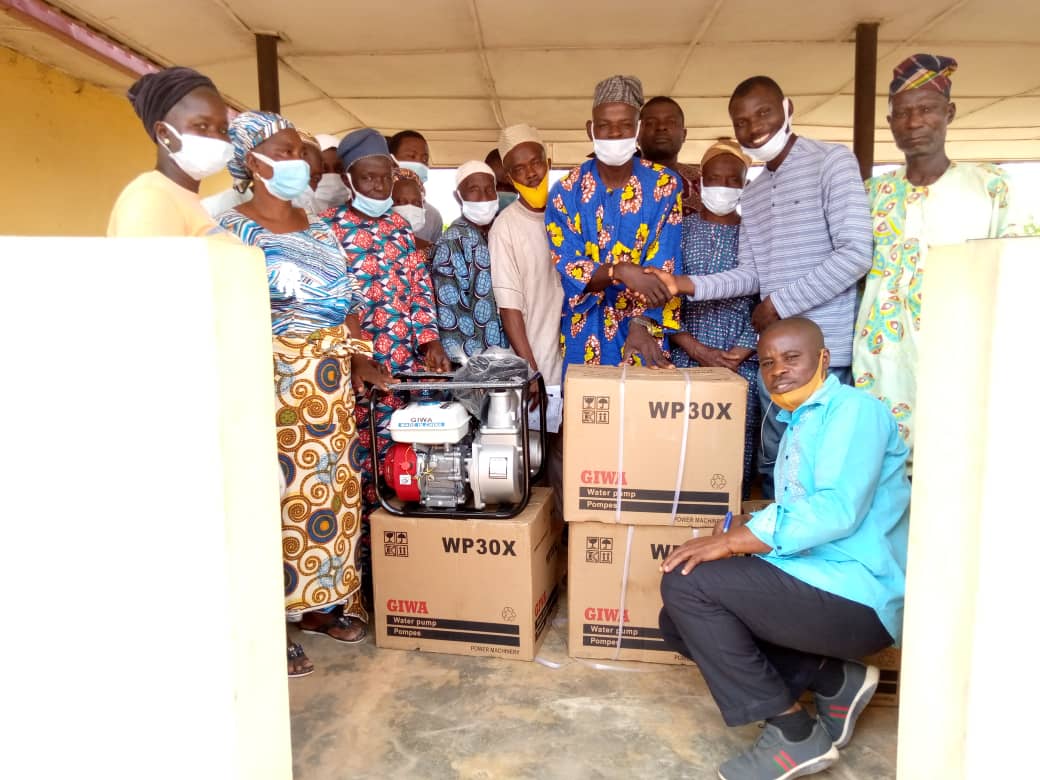
Ecosystems are faltering with biodiversity declining at an alarming rate. The consequences are dire, from disrupted weather patterns to jeopardised food and water security.
To change the status quo, Elujulo is leading an organisation called Youth in Agroecology & Restoration Network. His team is dedicated to addressing the pressing issues of hunger, rural poverty, and the climate crisis by working at the intersection of agriculture, climate change, nature, and agrobiodiversity.
So far, the 32-year-old has centred his work on four pillars — connect, support, educate and elevate.
“Most of the advocacy work we do are written in the language the farmers understand. We educate them about climate change and food systems and encourage them to adopt sustainable agricultural practices,” he told TheCable
“One of the reasons why the policies on food systems are not delivered on is because the voices of the concerned farmers are not engaged and included in the policy process. This is where we elevate them.
“We engage with farmers at the local level and take their feedback to policymakers at national and international levels to ensure that their perspectives are covered and the policy process is inclusive of the main stakeholders.
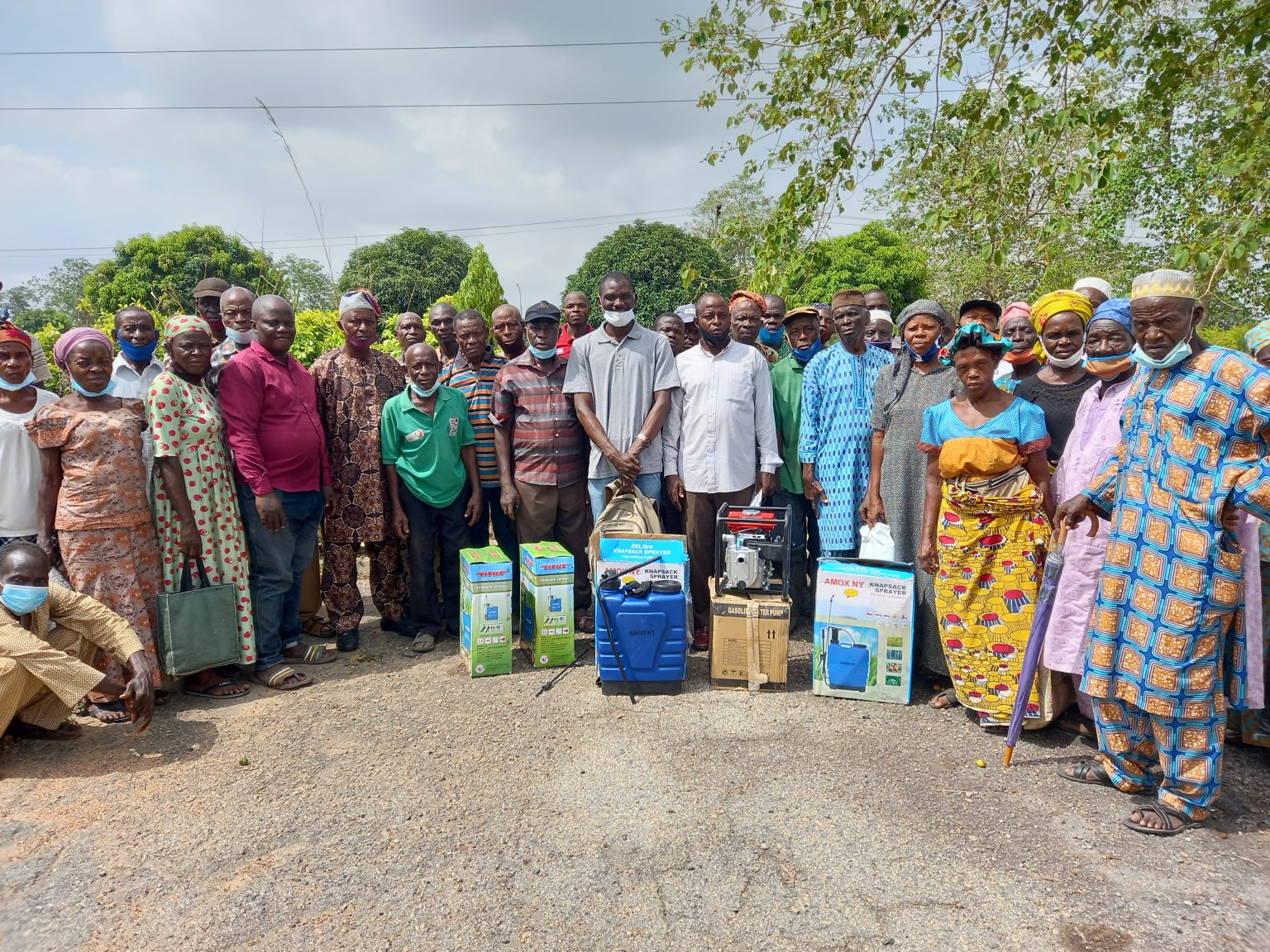
“On the point of support, we host stakeholders dialogue where we bring farmers, policymakers, and consumers together. We know they’re not usually aligned in their priorities but we need all of them to achieve a sustainable transformation.
“The main aspect is support where there are capacity building workshops and trainings on sustainable practices, and conserving soil health. We support them in transition packages as little as we can, be it in irrigation pumping machines, seeds, registration for farmers’ cooperatives, loans, etc.”
To celebrate Earth Day, Elujulo opines that prioritisation of sustainable agriculture will not only drive food security but will also boost the economy. He urged the federal government to consider the option because a country only prioritises where its money comes from.
“Before the advent of oil, agriculture was everything to Nigeria. It’s time for Nigeria to start thinking about agriculture and not just about food security, but also as a means of empowering young people,” he said.
“It’s time we started focusing on restoration over degradation and bringing back the beauty of agriculture. We need to be intentional about the sustainability of our ecosystem.”
Add a comment
